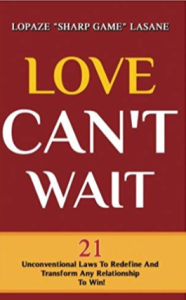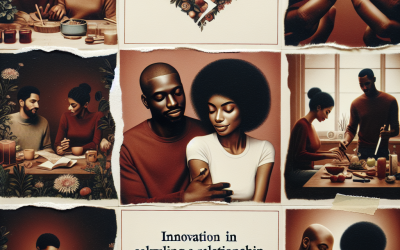Transforming a Broken Vow: How Saving Marriage After Addiction Recovery Can Renew Hope and Strengthen Bonds
In my experience with saving marriage after addiction recovery, I’ve come to realize how deeply addiction can strain even the strongest relationships. When my partner struggled with addiction, I felt helpless and unsure if we could ever rebuild what was lost. I want to share what I’ve learned about transforming a broken vow into a renewed promise, especially through the process of saving marriage after addiction recovery.
While navigating this challenging journey, I discovered that saving marriage after addiction recovery isn’t just about stopping the substance use—it’s about healing both the individual and the couple as a unit. I’ve found that with patience, effort, and proper guidance, couples can emerge stronger and more connected. This article aims to shed light on my personal insights and practical steps for those committed to saving marriage after addiction recovery.
Understanding the Impact of Addiction on Marriage
Recognizing the Emotional Toll
In my experience, addiction doesn’t just affect the person using—it ripples through the entire relationship. I’ve seen how trust erodes and communication breaks down when addiction is present. Saving marriage after addiction recovery begins with understanding the depth of this emotional toll. From what I’ve learned, acknowledging the pain and betrayal involved is essential for healing to start.
I recommend that couples openly discuss their feelings and fears. When I first faced this situation, I realized that honesty about the emotional impact was crucial. It helped my partner and me to begin rebuilding trust and to understand each other’s perspectives better. Recognizing these emotional scars is a vital step in saving marriage after addiction recovery.
The Challenges of Rebuilding Trust
From my research and personal experience, trust is the foundation of any healthy marriage, and addiction severely tests that foundation. I’ve discovered that saving marriage after addiction recovery requires consistent effort to demonstrate reliability and honesty. Small actions, like keeping promises and being transparent, go a long way.
I recommend couples work together to set realistic expectations and establish boundaries. In my journey, I found that patience and persistence are key. Rebuilding trust is not instant—it’s a gradual process that, when approached with genuine intention, can lead to a stronger bond.
The Journey of Saving Marriage After Addiction Recovery
Seeking Professional Help
In my experience, professional guidance was instrumental in our healing process. I’ve discovered that couples therapy provides a safe space to address underlying issues and learn new communication skills. When I first considered therapy, I was hesitant, but it became a turning point in our journey of saving marriage after addiction recovery.
I recommend seeking counselors who specialize in addiction recovery and marriage counseling. From what I’ve seen, professional support helps couples navigate complex emotions and develop strategies to strengthen their relationship after addiction.
Building a Support System
From my perspective, having a strong support system is vital. I’ve found that connecting with others who have gone through similar experiences provides comfort and practical advice. Support groups for addiction and marriage recovery can offer insights that are hard to find elsewhere.
I believe that engaging with these communities can reinforce your commitment to saving marriage after addiction recovery. Sharing your story and hearing others’ successes can inspire hope and resilience.
Fostering Personal Growth
Personally, I’ve learned that individual growth plays a crucial role in saving marriage after addiction recovery. My partner and I both committed to self-improvement—whether through therapy, education, or new hobbies. This personal development not only helped us heal but also strengthened our bond.
I recommend that couples prioritize their mental and emotional health. When I focused on my well-being, I was better equipped to support my partner and contribute positively to our relationship’s healing process.
Key Strategies for Rebuilding Trust and Connection
Effective Communication Techniques
In my experience, open and honest communication is the backbone of saving marriage after addiction recovery. I’ve discovered that actively listening and expressing feelings without blame foster a safe environment for healing. When I first applied these techniques, I noticed a significant improvement in our connection.
I recommend couples practice empathetic listening and avoid defensiveness. These small changes can drastically improve how you relate to each other, making it easier to rebuild trust and intimacy.
Creating New Relationship Rituals
From what I’ve learned, establishing new routines and rituals helps replace negative patterns from the past. Whether it’s a weekly date night or daily check-ins, these rituals reinforce your commitment to each other. Personally, I found that celebrating small victories kept us motivated to continue working on our relationship.
I believe that intentionally creating positive experiences together fosters a sense of unity and hope, which is essential when saving marriage after addiction recovery.
Practicing Patience and Compassion
In my journey, patience and compassion were vital. Recovery and rebuilding trust take time, and setbacks are normal. I learned to be gentle with myself and my partner during difficult moments. This attitude of understanding helped us stay committed to our goal of saving marriage after addiction recovery.
I recommend that couples embrace patience and practice self-compassion. These qualities create a nurturing environment where healing can flourish.
Personal Stories and Lessons Learned
My Personal Experience with Saving Marriage After Addiction Recovery
When my partner first admitted to struggling with addiction, I felt overwhelmed and betrayed. However, I decided that I wanted to try everything possible to save our marriage. Through counseling, support groups, and personal reflection, I saw how hope could be rekindled.
From what I’ve learned, saving marriage after addiction recovery is about perseverance and willingness to heal together. Our relationship is now more resilient, and I believe that honest effort and mutual respect are the keys to transforming a broken vow into a renewed promise.
The Lessons I’ve Learned
I’ve discovered that patience, communication, and support are essential. I recommend that couples approach recovery with an open heart and a willingness to grow. Saving marriage after addiction recovery is a journey—not a quick fix—and it’s worth every effort.
My experience shows that even in the darkest times, hope and commitment can lead to a stronger, more connected relationship.
References and Resources
Throughout my research on saving marriage after addiction recovery, I’ve found these resources incredibly valuable. I recommend checking them out for additional insights:
Authoritative Sources on saving marriage after addiction recovery
-
Substance Abuse and Mental Health Services Administration (SAMHSA)
samhsa.govA comprehensive resource offering guidance on addiction recovery and how it impacts relationships, with tools for couples working to rebuild trust and connection.
-
Psychology Today: Couples and Addiction
psychologytoday.comOffers articles, expert advice, and therapy options tailored for couples seeking to save marriage after addiction recovery.
-
Healthline: Overcoming Addiction in Relationships
healthline.comProvides practical tips and success stories on saving marriage after addiction recovery, emphasizing emotional healing and resilience.
-
National Center for Biotechnology Information (NCBI)
ncbi.nlm.nih.govResearch articles and studies on addiction and relationship dynamics, offering evidence-based strategies for couples recovering together.
-
American Medical Association
ama-assn.orgFeatures professional insights into addiction treatment and its importance in relationship recovery processes.
-
NAR-ANON Family Groups
nar-anon.orgSupport community focused on families affected by addiction, providing resources for healing and rebuilding relationships.
-
Recovery.org
recovery.orgA practical resource offering advice and personal stories about saving marriage after addiction recovery.
-
Psych Central
psychcentral.comIncludes articles on emotional intimacy, rebuilding trust, and the psychological aspects of saving marriage after addiction recovery.
Frequently Asked Questions
How long does it typically take to save a marriage after addiction recovery?
In my experience, the timeline varies depending on the individuals and circumstances involved. From what I’ve learned, it can take months or even years of consistent effort to fully rebuild trust and intimacy. Patience and perseverance are essential when focusing on saving marriage after addiction recovery.
What are the most effective ways to rebuild trust after addiction?
Based on my experience, transparency, open communication, and setting clear boundaries are crucial. I recommend couples prioritize honesty and show reliability through consistent actions. These steps are fundamental in saving marriage after addiction recovery.
Can therapy really help in saving marriage after addiction recovery?
I believe therapy is one of the most powerful tools. From what I’ve seen, a skilled therapist can facilitate healing, improve communication, and help couples navigate complex emotions. I highly recommend it when working towards saving marriage after addiction recovery.
What personal qualities are important for couples trying to save their marriage after addiction?
In my opinion, patience, compassion, and commitment are vital. I’ve learned that maintaining a positive outlook and being willing to grow together can make all the difference in saving marriage after addiction recovery.
Conclusion
In conclusion, my research on saving marriage after addiction recovery has shown me that hope, effort, and mutual dedication are the keys to transforming a broken vow into a renewed promise. I hope this guide helps you understand that healing is possible, and even in the darkest moments, love and commitment can prevail. Based on my experience, I believe that with patience, professional support, and a willingness to grow, couples can emerge stronger than ever, forging a resilient bond that withstands any challenge.
Find out more information about “saving marriage after addiction recovery”
Search for more resources and information:







